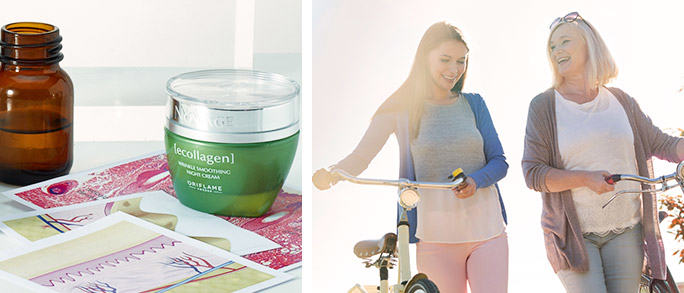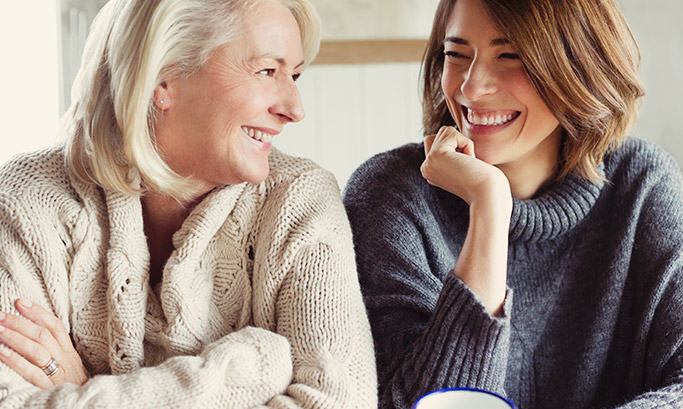So let’s break it down what is DNA?
Simply put: DNA carries all of the information that makes us unique. We inherit this information from both of our biological parents, which is why your DNA makeup – your genes – are always exclusive to you. Well, unless you have a twin that is!
If our genes determine what we look like – our hair colour, height, build – surely it’s the biggest influencer on how our skin ages too?
Recent studies show that although genes play a role in how you age, the biggest part – in fact up to 80% - is determined by your own personal choices and environmental factors. When I say personal choices, I mean sleeping right, eating a healthy diet and drinking enough water – to name a few. While environmental factors include sun exposure, smoking, pollution and working in very dry, indoor areas.
Wow! But why are these environmental factors so bad for the skin?
Mainly because they cause skin cells to oxidise.
You see, when oxygen is metabolised in our bodies it creates free radicals, which damage our cells. Having some free radicals in our bodies is actually a good thing – we need them for our system to function properly. However, an overload of free radicals has been linked to diseases such as liver and heart disease, and some cancers. Free radicals also affect the quality of our skin by accelerating the ageing process. Stress, smoking, alcohol, sunlight and pollution are all culprits!
But, why is the sun so bad for the skin?
Excessive sun exposure has a number of negative side effects – skin cancer being the worst. The sun’s harmful UV rays cause spots that lead to skin discolouration and the destruction of elastin and collagen which leads to wrinkles and skin sagging.
But I have to add – a little bit of sun is good too! Vitamin D is created with sun exposure and is needed to help our bodies absorb calcium, contributing to stronger bones and a healthier immune system. Vitamin D is also known as the “happy” vitamin. Spending up to10 mins a day, depending on the time of the year and latitude, is enough to produce vitamin D and deliver these benefits to the body.

What can be done to prevent the skin from ageing faster?
Think inside and outside. Avoid excessive sun exposure, hydrate properly, eat a healthy diet and invest in a daily skin care routine which keeps the skin free of impurities and delivers powerful active ingredients that will slow down the ageing process.
Is it too late to start trying for younger-looking skin?
It’s never too late to invest in good products. As the damage from excessive sun exposure increases over time, most of the damage is done by our 20’s. Never the less, you can always improve the skin’s condition by investing in a good skin care routine.



